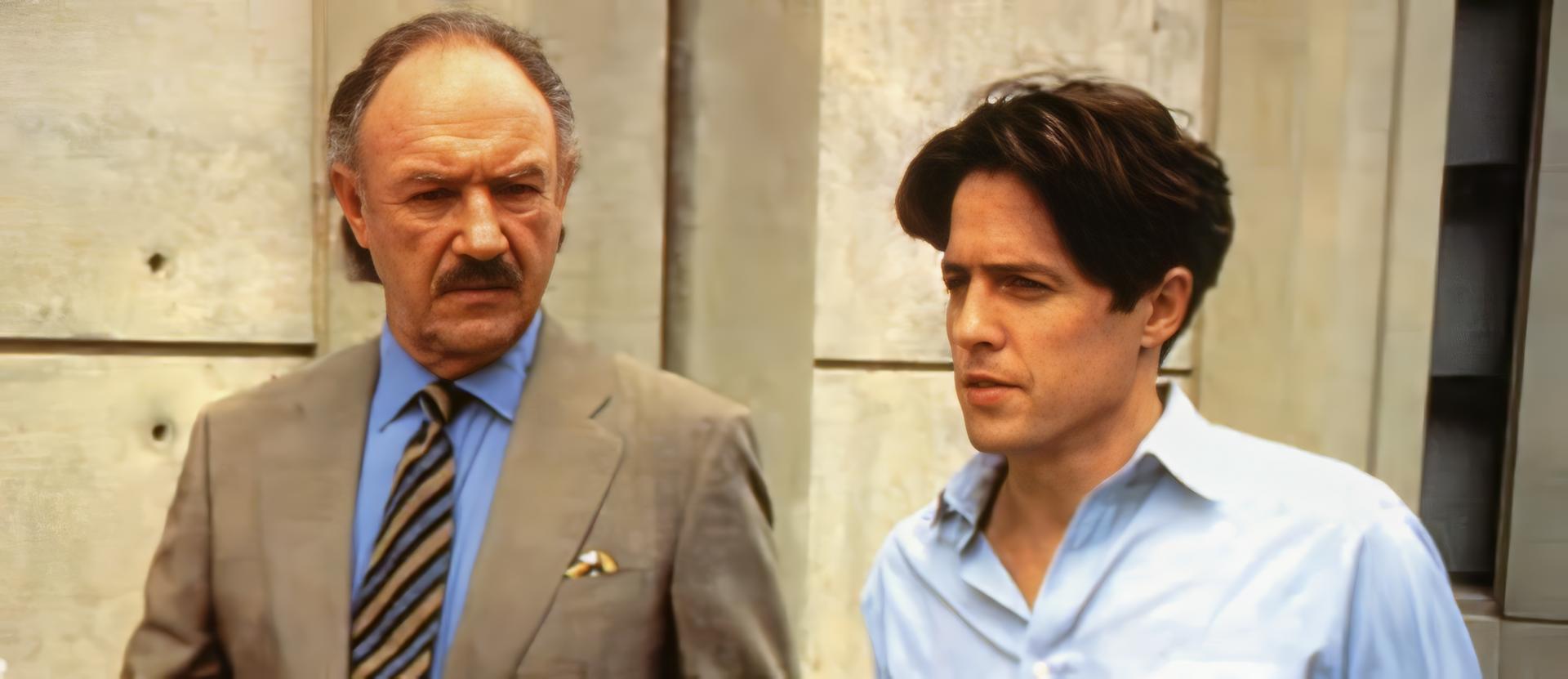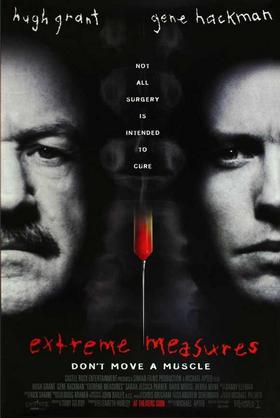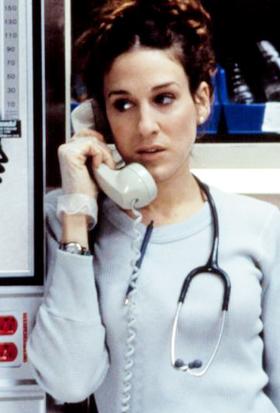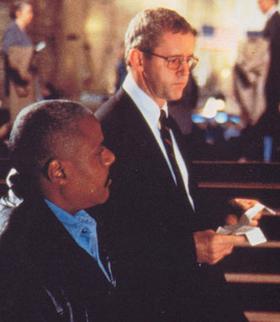Extreme Measures
 for violence, language, some nudity and graphic ER activity.
for violence, language, some nudity and graphic ER activity.
Reviewed by: Ken James
STAFF WRITER
| Moral Rating: | Very Offensive |
| Moviemaking Quality: |
|
| Primary Audience: | Adults |
| Genre: | Thriller |
| Length: | 1 hr. 57 min. |
| Year of Release: | 1996 |
| USA Release: |
September 27, 1996 |
| Featuring |
|---|
|
Hugh Grant … Dr. Guy Luthan Gene Hackman … Dr. Lawrence Myrick Sarah Jessica Parker … Jodie Trammel David Morse … FBI Agent Frank Hare J.K. Simmons … Dr. Mingus See all » |
| Director |
|
Michael Apted |
| Producer |
|
Elizabeth Hurley |
| Distributor |
“Not all surgery is intended to cure. Don’t move a muscle.”
If by murdering one person you could cure a life-shattering malady that inflicts millions worldwide, would you do it? “Extreme Measures” poses this moral dilemma.
Dr. Guy Luthan (Hugh Grant) is a promising young physician practicing medicine at a central New York City hospital. He has a bright future, with a new internship awaiting him at New York University. He believes his life is nearly perfect …until it comes crashing down through a rapid change of events.
The bizarre death of a homeless man while under his care causes the good doctor to probe for answers in finding the cause of this death. But the body disappears, and many attempts are made by others in an attempt to turn him away from his search for the truth.
Guy unintentionally becomes involved in a deadly game with both the FBI and the sinister, yet humanitarian work of Dr. Lawrence Myrick (Gene Hackman), one of the country’s most respected medical figures. Dr. Myrick believes he can cure paralysis by growing new nerves around victims' vertebrae. However, his zealous pursuit of the cure leads him to experiment on healthy homeless people, whom he incorrectly assumes will not be missed after they “disappear.”
The Bible clearly states that God created mankind in His own image, male and female, rich and poor. We are all of equal value in the eyes of our Creator. Therefore, the taking of any human life in this fashion is murder. Although Dr. Myrick’s goal to cure a world wide plague is commendable, his methods are beyond moral. Through his warped sense of values, Myrick plays God, believing it is his right to take life that is “meaningless” if it is to cure disease.
This medical-thriller possesses an intriguing plot, coupled with enjoyable and exciting action. Unfortunately, profanity is not rare. Also, the movie opens with a scene of two naked men running through the streets of New York City at night. The nudity, which is mostly backside and non-sexual, captures the attention in a unique way, and certainly causes the viewer to feel sorry for these two men who are being exploited by the medical profession.
While “Extreme Measures” was enjoyable to watch, there seemed to be something lacking that could make it a “great” movie. Instead, the movie settles with average. Hugh Grant is a likable character, and does well with this new role in a “thriller.” While “Extreme Measures” is an appropriate name, it is not memorable and seems awkward somehow with the story of this film. Another more memorable name would have been more appropriate.


We have just been led down a path—we have all concurred that in some sense the lowlife druggie had “less value” than the fine upstanding policeman. Then the movie takes that perspective and says, “aha!—the end result of that kind of thinking will get you to the sort of scenario described here—sacrificing the lives of those deemed of little value in order to help mankind.”
…It reminds me of early movies about euthanasia—movies that portrayed a loving husband “ending the misery” of his terminally ill wife. The man who did the euthanizing was always convicted, and there would be a little moralizing, but the overall impact was to raise that haunting question—“is it really so wrong?” This movie, I believe, has the same sort of effect.
It raises the question—should we sacrifice the few for the welfare of the many—and the answer the movie proposes is, “well, of course, you can’t really do that—but maybe you should be able to…” In this way we are slowly manipulated toward approving things that God has forbidden. Our culture now approves abortion, euthanasia, easy divorce, extramarital affaairs—and this movie, I think, chips away at respect for individual human life.




